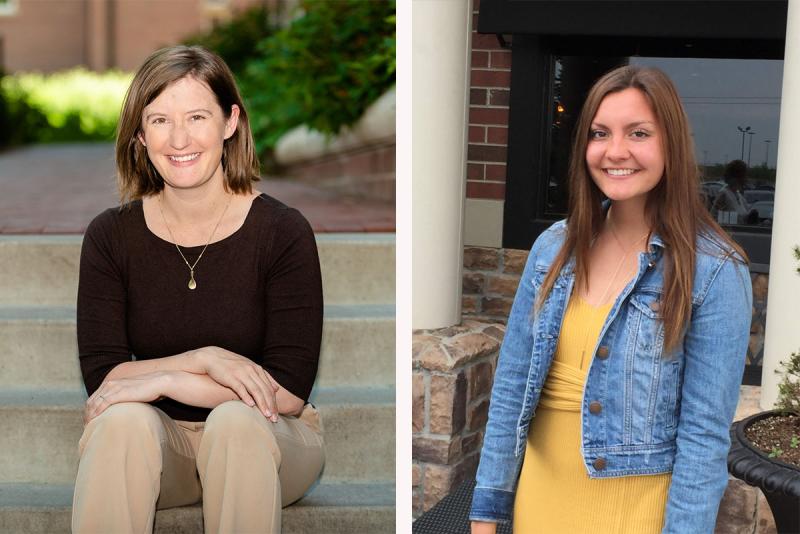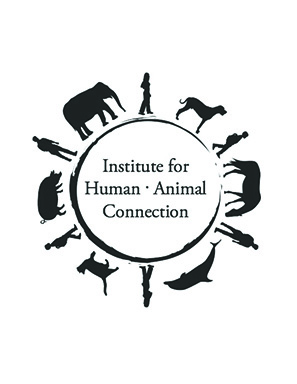Research Fellowships at the Institute for Human-Animal Connection
The Institute for Human-Animal Connection’s Post-Master of Social Work Research Fellowship program, which has been generously funded by an anonymous donor through a grant to the University of Denver’s Graduate School of Social Work, provides individuals with robust training in social science research with a focus on the Human-Animal-Environment Interaction field. The Research Fellows are integral members of the IHAC Research team, with an emphasis on creating academic products that include funding proposals, peer-reviewed journal articles, conference abstracts, and other publications to formally communicate research findings and build the Fellow’s professional portfolio. After two years, the Research Fellow will be prepared for doctoral programs and/or research within academic, non-profit, or for-profit environments.
Research Fellows at IHAC come from a variety of different backgrounds.
For Jaci Gandenberger, MSW, IHAC’s first Research Fellow, this underlying fascination was sparked into a conscious career pursuit four years ago when she adopted her dog, Asha. Jaci worked to educate herself on positive dog training approaches to promote a safe and secure environment to support Asha through her anxiety and leash reactivity. The growth in their bond that resulted from their mutually supportive and caring relationship inspired Jaci to attend GSSW and work towards the animal-assisted social work certificate. During her time in the program, she discovered a love for research through her work study position with IHAC’s Research team. She applied for the Research Fellowship after graduation to continue building on her understanding the human-animal connection.
Through the Research Fellowship, Jaci is gaining valuable experience and training in research and cementing her passion for research. The Fellowship is also providing clarity on her research interests and professional development goals, equipping her to take the next steps in her educational and career journey. In her role as a Research Fellow with IHAC, Jaci is contributing to a variety of projects. One of these projects includes working on several quantitative and qualitative studies that are examining how nature-based interventions are utilized to promote self-regulation in youth at Green Chimneys, a residential and day treatment school in New York. Another project is focusing on measuring the impacts of cultural competence in companion animal welfare interventions. This study is particularly timely given the animal welfare field's growing commitment to considerations of diversity, equity, and inclusion in order to better serve low income communities, particularly people of color. Jaci’s third project will examine the biological impacts of dogs on their owners’ stress levels. The study will also measure how dog owners' stress levels impact their dogs' wellbeing.
IHAC Research seeks to answer key questions that can meaningfully move the human-animal-environment interaction field forward. Each of the research projects focuses on the intersections between non-human animals and marginalized populations, including traumatized youth, individuals who are incarcerated, veterans with PTSD, and low income communities. Jaci is passionate about grounding each of the projects in social work values and a social justice lens. By incorporating a social work lens, IHAC Research’s work can lead to a greater understanding of how to most effectively support those communities.
IHAC’s second Research Fellow, Tess Hupe, MSW, started her career as a clinical social worker in community-based organizations. This included after-school programs for low income children, a child and adult victim advocacy center, and an agency providing therapy for families in the child welfare system. Within each of her roles, Tess incorporated alternative therapeutic interventions into her social work approach to support individuals who have experienced complex trauma. As a part of that approach, Tess became acutely aware of the therapeutic benefits of pet ownership and learned how many of her clients viewed their pets as a source of comfort and connection. Unfortunately, this human-animal bond was also a privilege that not all of her clients could access or maintain because of economic insecurity or family separation. In her work, Tess supported families as they grappled with the risk of having their pet confiscated while they were experiencing homelessness, re-homing their pet due to the inability to afford pet care services, and being separated from their pets because of a Child Protective Services concern. In her role as an IHAC Research Fellow, Tess will contribute to research that improves vulnerable populations’ access to the benefits of the human-animal bond.
In her first year as a Research Fellow, Tess is serving as a project manager for the Pets for Life as One Health Study, where she is learning about how community-based research can be a platform for driving significant policy change. Specifically, she is working on a quantitative study focused on how an animal welfare intervention improves access to pet care, and a qualitative study to understand the One Health impacts of cats in communities. Tess is interested in combining her research experience and clinical social work skills to continue engaging with low income communities and people of color in participatory research. Her goal is to utilize this type of research to inform policy and practice reform by elevating the voice of marginalized communities.
The application for the 2021-2023 Post-MSW Research Fellowship with the Institute for Human-Animal Connection is now available. Applications are due April 15, 2021.

